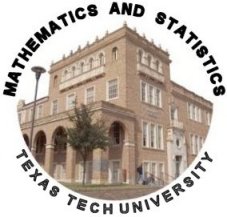Workshops for Students
Music is math. Sounds good?
Dr. Giorgio Bornia
Music is the place where sounds meet feelings.
We play music because we feel.
We listen to music because we feel.
And guess what? Mathematics - apparently such a cold discipline - takes part in this emotional process.
We will explore the world of music through mathematics.
In this journey, a good old companion will lead us: the guitar.
Classifying wallpaper patterns
Dr. Lance Drager
We will present the idea of Euclidean motions in the plane and groups of motions.
We will list the 17 classes of wallpaper patterns, and practice classifying some
example of wallpaper patterns, including some Escher drawings.
The Science of Neuroscience: How the Brain Controls our Movements
Dr. Bijoy Ghosh
In this talk we introduce what goes on inside our brain
when we are about to make a movement, say for example
in our hands. In a portion of our brain, the movement
commands are generated by a collection of neurons. The
command signals move through a chain of neurons to
ultimately cause a suitable muscle in our hand to
contract. There are a large number of muscles responsible
for a simple action such as, pointing our finger or
making a gesture. We will talk about neural firing,
muscle contraction and how our brain coordinates
these activities to perform a multitude of complex tasks.
Mathematical Models of Predator-Prey and Competition
Dr. Sophia Jang
Mathematical models are important tools to study biological phenomena.
In this workshop we shall explore the cyclic behavior of the predator-prey
interactions and of the competition outcomes for two competing populations.
We will see when the predator and prey populations can coexist and when
the predator will drive the prey population to extinction in a predator-prey
system. We will also examine which population can out compete the other
population when two populations utilize the same limited resources.
Mathematical Toxicology: How can we predict the effects of pollutions?
Dr. Angela Peace
Everything in the environment is made of chemicals.
Both naturally occurring and manmade substances are
chemical in nature. People and other animals are
constantly exposed to chemicals. We will learn how
math is used to study of the effects of toxic chemicals
on biological organisms. We will determine how much
of a chemical can you be exposed to without seeing
adverse effects.
Geometry and Fabric Fold Flowers
Mrs. Carol Williams and Dr. Brock Williams
We will discuss how to use geometry to make basic patterns for fabric folding projects.
We will learn the basic geometric constructions using compass and straight edge.
These will allow us to make the differently sized hexagons, octagons, and dodecagons
used as the templates for various folded fabric flowers.
|

